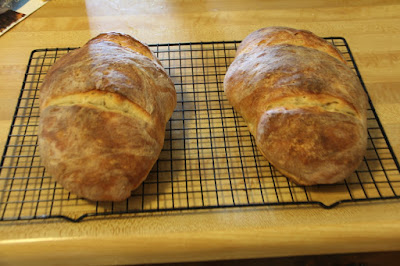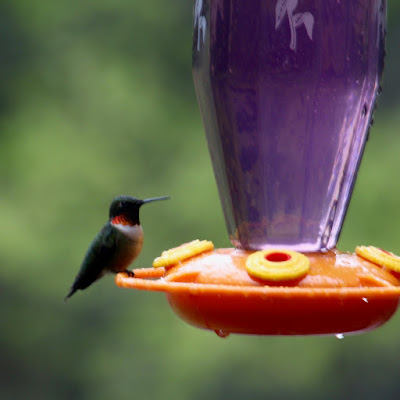I hope you and those close to you remain healthy and virus-free. I've seen reports and videos that MAGAts of various species are protesting against shelter-in-place orders. I'm starting to remember reading about the Industrial Workers of the World and the strikes that were part of the
IWW history. In light of reports coming out of work places like the
Smithfield plant in South Dakota, it may well be time to become more supportive of the Wobblies and those like them, rather than fall for false patriotism and claims of "freedom."
 |
essential workers: farmers or hedge fund managers?
|
Have you read Howard Zinn's
A People's History of the United States? It's been criticized by some but Zinn defends it this way:
My history ... describes the inspiring struggle of those who have fought slavery and racism (Frederick Douglass, William Lloyd Garrison, Fannie Lou Hamer, Bob Moses), of the labor organizers who have led strikes for the rights of working people (Big Bill Haywood, Mother Jones, César Chávez), of the socialists and others who have protested war and militarism (Eugene V. Debs, Helen Keller, the Rev. Daniel Berrigan, Cindy Sheehan). My hero is not Theodore Roosevelt, who loved war and congratulated a general after a massacre of Filipino villagers at the turn of the century, but Mark Twain, who denounced the massacre and satirized imperialism.[8][9] I want young people to understand that ours is a beautiful country, but it has been taken over by men who have no respect for human rights or constitutional liberties. Our people are basically decent and caring, and our highest ideals are expressed in the Declaration of Independence, which says that all of us have an equal right to "life, liberty, and the pursuit of happiness." The history of our country, I point out in my book, is a striving, against corporate robber barons and war makers, to make those ideals a reality — and all of us, of whatever age, can find immense satisfaction in becoming part of that.[10]
In light of what we've've been seeing during the past few years, and the reaction of the mainstream Democratic establishment toward the more progressive members of the party, I'm finding myself, despite getting older, leaning more Zinn-like in my assessment of the direction we need to move to actualize the ideals on which this country was purported to be established.
Perhaps it's due to my having been an English major in college, but I've always been fond of Mark Twain. Another rebel I admire is Ani DiFranco. Never have I seen a more infectious grin than her's on the
Knuckle Down cover. The fact that she's done a number of CD's with
Utah Phillips is another reason to gratefully acknowledge her authenticity. As I recall from the liner notes on one of the DiFranco-Phillips albums, Utah was proud he
carried an IWW card.
It's becoming more and more clear to me as the COVID-19 pandemic continues that the "normal" we were living pre-pandemic was not healthy, just, not sustainable for 99% of us and all of the planet on which we depend for our air, water, food and shelter. Let's make sure we "return" to something better. Try listening to DiFranco and Phillips, reading Zinn, listening to early Dylan and all of Woody Guthrie. My America has a long, proud history of rebellion embedded in community. There's no I, I, I nor me, me, me in US. We would do well to reacquaint ourselves with that instead of accepting the false patriotism of excessive individuality.
This Land Is Your Land
This land is your land, this land is my land
From California to the New York island,
From the redwood forest to the Gulf Stream waters;
This land was made for you and me.
As I was walking that ribbon of highway
I saw above me that endless skyway;
I saw below me that golden valley;
This land was made for you and me.
I've roamed and rambled and I followed my footsteps
To the sparkling sands of her diamond deserts;
And all around me a voice was sounding;
This land was made for you and me.
When the sun came shining, and I was strolling,
And the wheat fields waving and the dust clouds rolling,
As the fog was lifting a voice was chanting:
This land was made for you and me.
As I went walking I saw a sign there,
And on the sign it said "No Trespassing."
But on the other side it didn't say nothing.
That side was made for you and me.
In the shadow of the steeple I saw my people,
By the relief office I seen my people;
As they stood there hungry, I stood there asking
Is this land made for you and me?
Nobody living can ever stop me,
As I go walking that freedom highway;
Nobody living can ever make me turn back
This land was made for you and me.
********************************************
Thanks for visiting. Come again when you can.
Please be
kind
to each other while you can.






















